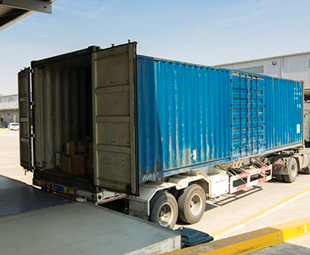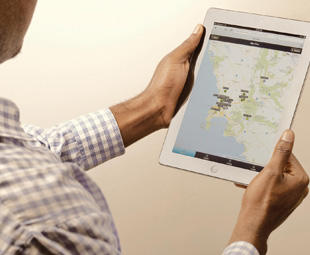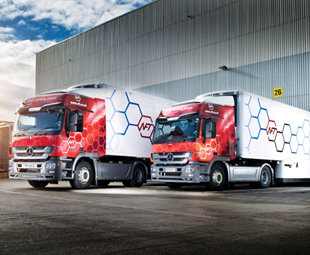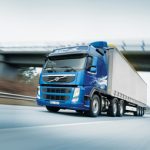Behind the fleet-management scenes

Fleet management is often punted along the lines of advanced tracking and reporting equipment and what these can do for a business. What does this actually mean in a day-to-day operation? FOCUS takes on the challenge and tries to find out …
The key word here is “tries”. As it was expected when this feature was planned, not many vehicle operators were very willing to bare all and let us in behind the scenes of their operations. Given the competitiveness of South Africa’s transport and logistics industry, that’s hardly surprising.
Nonetheless, on condition of anonymity, a large fast-moving consumer goods company allowed us a peephole view of its operation – so that we could try to understand how fleet management is applied in the real world.
The operation consists of 50 sites country wide. According to the company, it’s not only the products manufactured in these facilities that provide its competitive advantage. “Our distribution stops at nothing to deliver to trade,” we’re told.
 While primary distribution between the facilities is managed by five different contractors operating regionally within South Africa, the company manages its own secondary distribution operations; from the depots to trade. All the trailers used are owned by the company, as are some of the truck tractors. However, the majority of these are operated by owner drivers.
While primary distribution between the facilities is managed by five different contractors operating regionally within South Africa, the company manages its own secondary distribution operations; from the depots to trade. All the trailers used are owned by the company, as are some of the truck tractors. However, the majority of these are operated by owner drivers.
There’s more to the operation than that, though; with well over 1 000 fleet vehicles from the numerous regional offices running across the country – all of which are managed in house.
For the company, the ability to accurately cover and report on such a sizeable fleet is one of the most important considerations when choosing fleet-management systems. It’s got to be high-tech, too …
“All our units (including passenger vehicles used by sales representatives) need to be activated biometrically, tracked, and reported on in detail – including mileage, detailed speeding in different zones, abuse such as harsh braking, after-hours driving, and so on.”
Beyond that, there is also an administrative function to be taken care of. “We require a maintenance fund for mechanical and tyre issues, accident management, insurance management, fine redirection as well as licensing and vehicle disposal,” FOCUS learns. For all this, the services of numerous providers are enlisted.
Cost saving is always a big drawcard when looking at these systems. “Costs are reported on and the business has to implement corrective action, but, in some cases, the savings will be hidden. For example, minimising excess mileage to budget and below will not be visible, because it’s difficult to tell the difference between intervention and coincidence.
 “Costs, though, can always be seen clearly. All fleet management companies promise benefits compared to the competition, so we will issue a ‘request for proposal’ and compare the offering(s) by running our business case. We will select the provider with the lowest cost that has a footprint capable of covering our network across South Africa.”
“Costs, though, can always be seen clearly. All fleet management companies promise benefits compared to the competition, so we will issue a ‘request for proposal’ and compare the offering(s) by running our business case. We will select the provider with the lowest cost that has a footprint capable of covering our network across South Africa.”
We are told, however, that nothing is perfect. “No single fleet management provider can really deal fully with a company our size. There’s no one ‘bulletproof’ platform, because transport is a high headcount business where, as we know, salaries are low and skills are limited … And we are a demanding customer that expects perfection,” the company concludes.
Now there’s a challenge if ever there was one.
finding the right solution
It’s always worth looking at something from two different points of view – so we asked Eqstra Fleet Management how it helps its customers to find the right fleet management solution.
“In essence,” says Murray Price, managing director of Eqstra Fleet Management, “operators should look for a fleet management company that can offer an integrated solution and supply fleet data in real time. There are still many fleet management companies that offer only a few applications. This means that the fleet operators still have to call in reports from other suppliers and spend a lot of time coordinating these to get a complete view of their fleet.”
 Price says that Eqstra will begin to look at the operator’s existing fleet and determine whether or not they have the correct vehicles for the application. Once that is done and the total cost of ownership is evaluated, Eqstra is able to advise operators on the best telematics systems that can offer a total, real-time overview of the operating costs of the fleet.
Price says that Eqstra will begin to look at the operator’s existing fleet and determine whether or not they have the correct vehicles for the application. Once that is done and the total cost of ownership is evaluated, Eqstra is able to advise operators on the best telematics systems that can offer a total, real-time overview of the operating costs of the fleet.
“Eqstra’s specialised fleet department will configure vehicles that have the right fit for the purpose, at the best possible operating cost. Then, in offering operators a total real-time overview of the operating costs of the fleet, an Operational Dashboard is compiled according to customised fleet needs. This is composed mainly of data collected from vehicles and from a driver scorecard.
“Such a dashboard assists operators to reduce fleet expenses by carrying out a quarterly analysis of performance and progress reports. This is used to spot trends in vehicle performance, driver behaviour and productivity,” he explains.
So what does Eqstra see for the future of fleet management in 2016? “Running a fleet has become the second biggest cost to a company, after staff/administration costs. As companies increasingly focus on their core business, managing fleets in-house is becoming more expensive and inefficient.
“Fleet management companies help to ensure that vehicles are operated more efficiently and cost-effectively, by improving driver performance and managing maintenance schedules, thereby prolonging the use of the vehicles, while at the same time significantly reducing fuel and maintenance costs,” Price concludes.
Published by
Focus on Transport
focusmagsa




